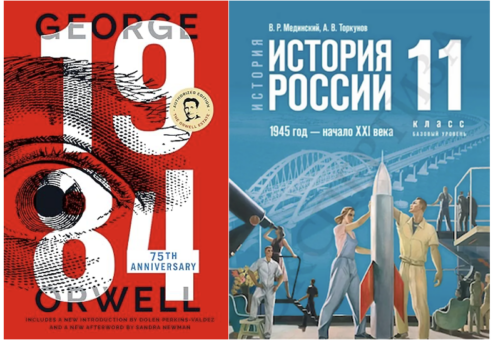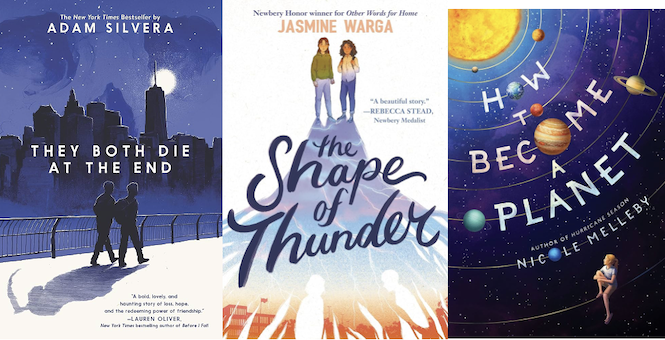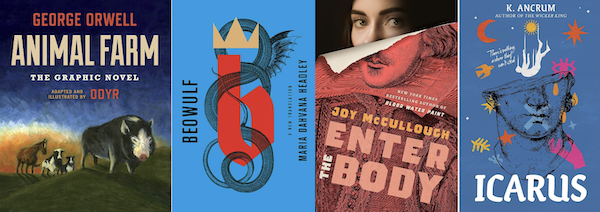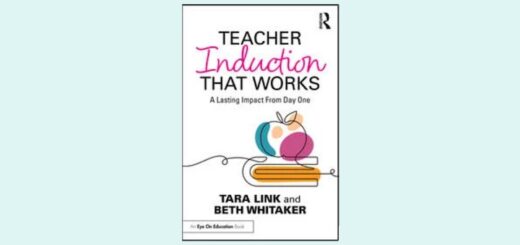Relating Classic Texts to Students’ Lives Today
By Kasey Short
 While classic texts have not changed, our students – the readers – are always changing.
While classic texts have not changed, our students – the readers – are always changing.
These changes alter the connections, perspectives, and understandings of the texts. For example, in teaching Romeo and Juliet I find students today are very focused on the characters’ mental health.
Earlier in my career, students didn’t pick up on that theme at all. As the world and our students are consistently changing, adding modern connections to classic texts can engage readers by helping them relate to and understand the universal themes and messages in these works.
Making Connections
Pop Culture
Connecting a classic to something in current pop culture can create instant engagement. You don’t have to know all the current pop culture to do this in your classroom. Have the students help by getting them to break down themes, mood, character traits, conflict, and then think about songs, movies, famous people, or TV shows that connect to the story. Once they find that one connection, they can build on it and find new connections.
Example: When teaching Romeo and Juliet I ask students to choose song lyrics that portray the same mood and themes as aspects of the play and then explain that connection. Students find this assignment fun because they can share something they enjoy. This year I found many students added more songs than required because they were having so much fun with it. Many of them used lyrics from Taylor Swift and Olivia Rodrigo.
For example, the song “Don’t Blame Me” by Taylor Swift includes the lyrics “Don’t blame me, love made me crazy” and “My name is whatever you decide and I’m just gonna call you mine.” The song “Bad Idea Right” by Olivia Rodrigo includes the lyrics, “Seein’ you tonight, it’s a bad idea, right?”
Both examples lend themselves directly to the mood and themes in Romeo and Juliet and provide students an opportunity to show what they know and understand about the classic story while also realizing it has modern day relevance.
Example Questions:
1. What movie/TV show/song has a similar theme to the book? Explain how the themes are similar.
2. What celebrity reminds you of one of the characters? Explain how they are similar.
3. Which character would most likely be an influencer if they were alive today? What type of brand deals would they get? Explain why.
Current Events
Classic literature includes timeless themes and experiences; connecting these themes and experiences to current events demonstrates how the insights from classic works can be applied to current events. It also encourages readers to think critically about the past and present and through analysis gain a deeper understanding of the world around them while also affirming the significance of classic literature. In this example, connect Orwell’s 1984 to a recent news event.

Students determine themes and events in the play or book that relate to a current event, research the current event and then make connections between them. For example: Animal Farm by George Orwell connects to current protests, oppressive regimes, or propaganda; Night by Elie Wiesel connects to current genocide, human rights, or antisemitism.
Example Questions:
1. What event in the story reminds you of something going on in our world today? Why does it remind you of it? How are they similar and different?
2. What advice do you think the main character would give the President of the United States? Why would they give that advice? What about their situation would help them know what advice to give?
3. Read the headlines from yesterday’s news. Choose one that you think a character from the play or book would be interested in and explain why it would interest them. What do you think their opinion would be of the news article based on what you have learned about them from the story.
Social Issues
Classic literature often reflects the issues of the time it was written. Making connections between the social issues from the text and the modern issues helps readers better understand the historical context and discover insights and inspiration for addressing current issues.
For example: The Odyssey by Homer connects to women’s rights and role in society or to treatment of refugees, 1984 by George Orwell connects to government surveillance or freedom of speech, and Frankenstein by Mary Shelley connects to ethics in technology development.
Example Questions:
1. How do the social issues in the text reflect when it was written? How would these issues be similar and different in a modern setting?
2. How do the characters respond to social issues in the text? How does this response compare to examples of people responding to similar issues today?
3. In your opinion, has society made progress in improving the issues shown in the story? Explain why.
Personal Connection
Making personal connections to texts helps students make meaning of the classic story and increases engagement and comprehension. We can ask them to think critically about their own experiences and find something in the story is relevant to them.
Example Questions:
1. Which of the characters in the story reminds you most of yourself or someone you know. Explain why, using specific adjectives and examples from the story.
2. If you could give the character advice, what would you tell them? What advice do you think they would give you?
3. What is the strongest emotion you felt while reading the story? Explain what in the story invoked that emotion and then explain a time in your life that you felt that emotion about a personal situation.
Modern Literature and Contemporary Adaptations
Reading modern literature with themes similar to classics demonstrates the relevance of the story, provides opportunities for additional diverse perspectives and voices, and deepens students understanding of universal themes. And contemporary adaptations of classics allow students to see the story written in a different format, from a different author, and often with a modern twist.
Modern Thematic Connections
Providing students an opportunity to choose a modern book of their choice to pair with their classic novel allows for additional student choice and helps them develop connections between modern and classic literature.
There are countless modern books that connect to classic literature. Below are a few of my recommendations. When deciding on recommendations for students, I start with themes from the classic and then look for modern books that have similar themes that connect well with the classic.
Romeo and Juliet by William Shakespeare
They Both Die at the End by Adam Silvera (Star crossed love)
The Shape of Thunder by Jasmine Warga (Violence and conflict)
How to Become a Planet by Nicole Melleby (Mental health)
Night by Elie Wiesel
Wild Poppies by Haya Saleh (Survival)
The Lost Year by Katherine Marsh (Remembrance)
Animal Farm by George Orwell
Scythe by Neal Schusterman (Surveillance)
The Middler by Kristy Applebaum (Revolution)
The Odyssey by Homer
Sona and the Golden Beast by Rajani LaRocca (Perseverance)
Alone by Megan Freeman (Survival)
Contemporary Adaptations of Classics
Contemporary adaptations of classics provide students a different format, voice, or perspective of the classic story. Graphic novel adaptations are often a favorite and make the complexity of classics more accessible to students. Here are some examples:
►The Iliad and The Odyssey, adapted by Gareth Hinds
►Icarus by K. Ancrum
►Bea Wolf by Zach Weinersmith
►Beowulf: A New Translation by Maria Dahvana Headley, JD Jackson, et al.
►That Way Madness Lies: 15 of Shakespeare’s Most Notable Worlds Reimagined by Dahlia Adler
►Enter the Body by Joy McCullough
►Anne of Green Gables by L.M. Montgomery, adapted by Mariah Marsden and illustrated by Brenna Thummler
►Meg, Jo, Beth, and Amy by Rey Terciero, illustrated by Bre Indigo
►Animal Farm by George Orwell, adapted by ODYR
What suggestions do you have for engaging adaptations or classic/modern pairs? Please share in the comments!
Kasey Short (@shortisweet3) is the Middle School Director of Studies and an 8th Grade English Teacher and Advisor at Charlotte (NC) Country Day School. Kasey loves to share ideas from her classroom and her leadership roles and writes frequently for MiddleWeb.
She attended the University of North Carolina at Chapel Hill where she earned a bachelor of arts in middle school education with a concentration in English and history. She went on to earn a master’s in curriculum and instruction from Winthrop University.
Browse all of Kasey’s MiddleWeb articles here and follow her at Bluesky.































